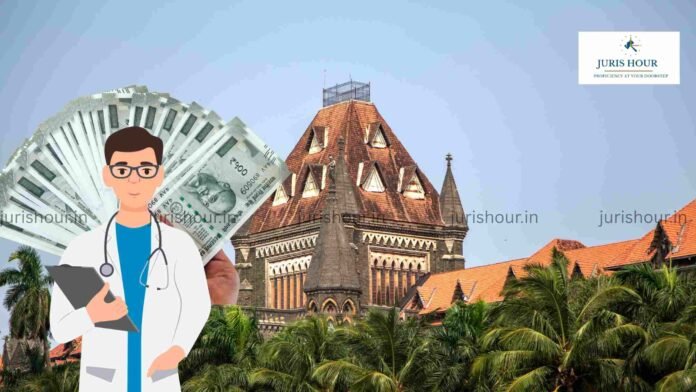The Bombay High Court has held that consultant doctors’ fees not salary as there is an absence of employer-employee relationship between the doctor and the hospital, therefore the TDS deductible.
The bench of Justice B. P. Colabawalla and Justice Firdosh P. Pooniwalla has observed that the Hospital does not exercise any real supervisory control in respect of the work entrusted to these doctors. All these factors clearly go to show that the relationship between the Assessee Hospital and these doctors, cannot and does not create any relationship of “employer and employee”. Another factor which is also important to note is that these very doctors filed their Income Tax Return under the head “Income from Business or Profession”. These doctors themselves also do not treat the remuneration received from the Assessee Hospital as a salary, as contended by the Assessing Officer.
The Respondent/Assessee, Dr. Balabhai Nanavati Hospital is a Trust, which is engaged in the business of running a hospital. In relation to this Trust, a survey under Section 133A was conducted in their premises and a discrepancy was found in deducting TDS, filing of quarterly TDS Returns and delay in deduction of TDS.
According to the department, it was observed that the Assessee had appointed consultant doctors on its panel. The Assessing Officer noted that the Assessee had deducted TDS from the honorarium pay to these doctors under Section 194J, treating it as fees for professional services. The Assessing Officer, after examining the appointment letters and the agreement with these consultant/honorary doctors, observed that the Respondent – Hospital exercised a great deal of control over these doctors by subjecting them to various restrictive clauses provided in the terms of employment. This was apart from working attendance conditions, placing accountability and governing leave etc.
The Assessing Officer concluded that the consultant doctors are employees of the Assessee and the payment made to them was in the nature of “salary”, and therefore TDS ought to have been deducted under Section 192 of the IT Act, instead of Section 194J.
The Assessing Officer held the Assessee in default under Section 201(1) and 201(1A) of the Income Tax Act and raised a demand for tax and interest.
The CIT(A) noted that the Assessee mainly employs two types of doctors i.e. (a) full time doctors, and (b) freelancer qualified doctors as consultants and in their capacity as “honorary doctors”. The CIT(A) noted that the appellant deducts tax under Section 192 on the salaries paid to the full time doctors, whereas the tax is deducted under Section 194J in respect of the honorary doctors.
The CIT(A) also noted that the Assessing Officer analyzed the terms of service of the honorary doctors and held them to be employees of the Appellant. The CIT(A) thereafter considered the submissions of the appellant, including the list of honorary doctors as well as their terms of appointment. To put it in a nutshell, the Assessee contended that while remunerating the honorary doctors, it retains a certain percentage from the billings raised on the patients for maintaining its infrastructure and for maintaining its administrative setup. These honorary and visiting doctors are categorized by the Department as “Professionals” and have allotted them a PAN and ward in the “Professional Circle”.
The court while dismissing the department’s appeal held that the consultant doctors are employees of the Assessee and the payment made to them was in the nature of “salary”, and therefore TDS ought to have been deducted under Section 192 of the Income Tax Act, instead of Section 194J.
Case Details
Case Title: CIT Versus Dr. Balabhai Nanavati Hospital
Case No.: Income Tax Appeal No. 2166 Of 2018
Date: 15/09/2025
Counsel For Petitioner: Mr. Prakash Chhotaray
Counsel For Respondent: Dr. K. Shivaram, Senior Counsel
Read More: Rule 86A Powers Can’t Be Invoked to Block Future ITC: Bombay High Court

